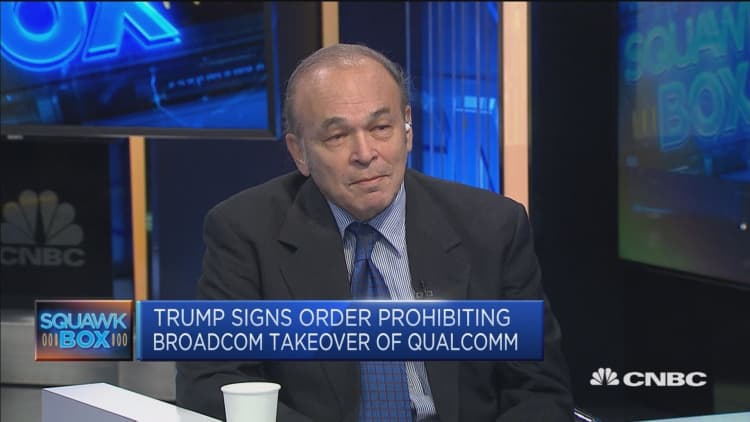
China is looking to invest for job creation — not mere trophies — according to an economist who analyzes the country.
According to Ron Napier, the head of Napier Investment Advisors, Beijing is currently thinking: "We don't want sporting teams and trophy-type of investments." That is, with a trade surplus in the hundreds of billions, China is not facing any immediate concerns about a shortage of capital resources, Napier explained. Prudence, on the other hand, is what China is aiming for, he said.
This comes as China committed to financial reforms in an annual work report. Delegates of the National People's Congress have voiced the need for greater fiscal prudence and a reduction of overall financial risk in the economy as debt remains at worrying levels.
As evidence of Beijing's disinterest in investments that didn't directly help the Chinese economy, Napier pointed to recent developments surrounding Chinese conglomerates. The prime example is the government takeover of Anbang, a formerly acquisitive insurer. But conglomerate HNA Group's moves to sell its stakes in Hilton hotels and timeshares, reflect a redefinition of where Beijing wants capital outflows to go: toward creating local jobs.
China is pursuing a redirection of capital investments "away from non-jobs to jobs," and some acquisitions have fit that mold, Napier said, pointing to Geely's purchase of Volvo in 2010, which created employment opportunities in local factories.
Geely again delivered by taking a nearly 10-percent stake in Daimler, and there's also support for Great Wall Motor's initial interest in Jeep, Napier said.
The latter example, however, is unlikely to see a deal struck given trade tensions between the U.S. and China, the economist told CNBC.
The U.S. attitude is "don't even think about Jeep," Napier said.

